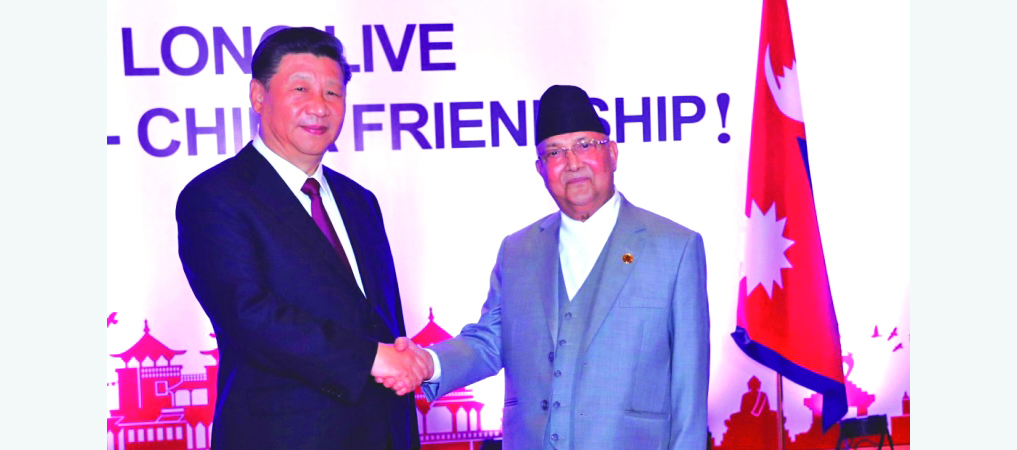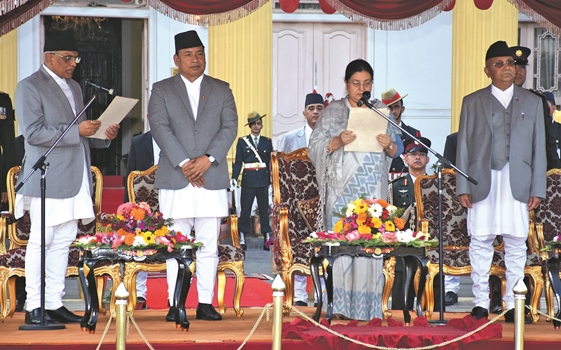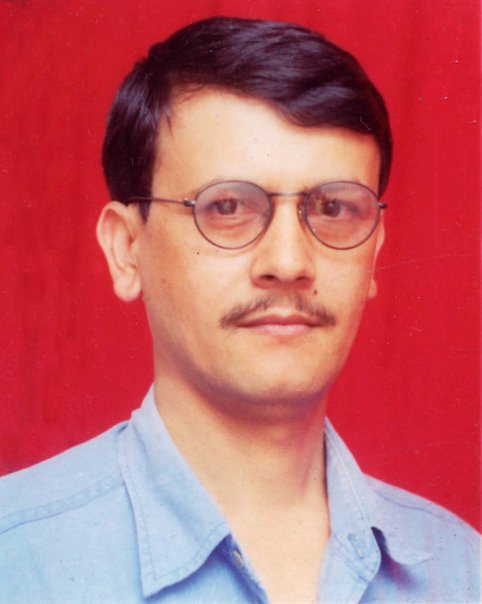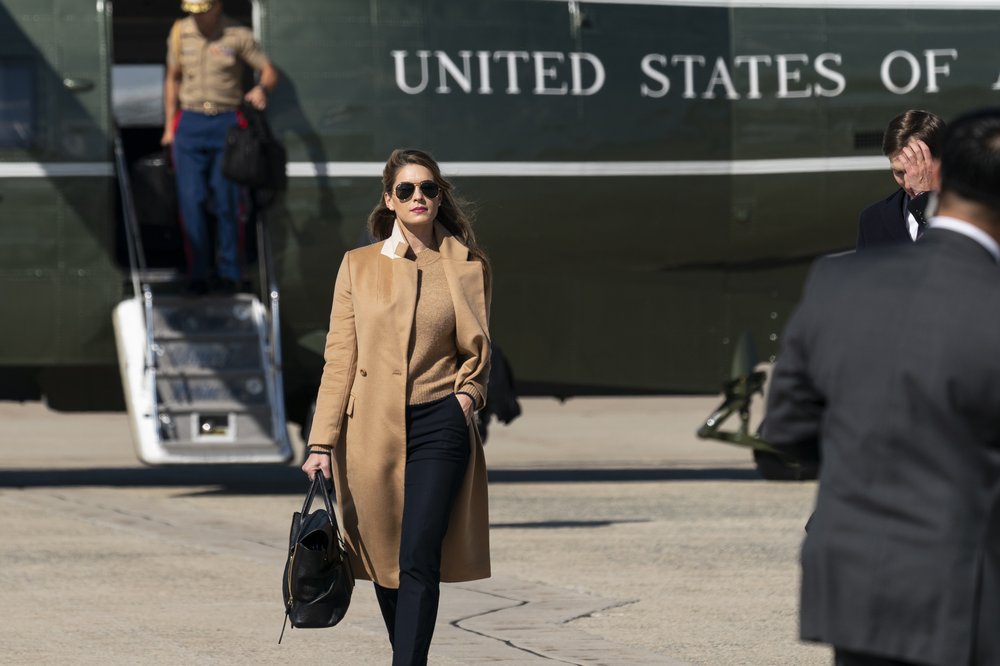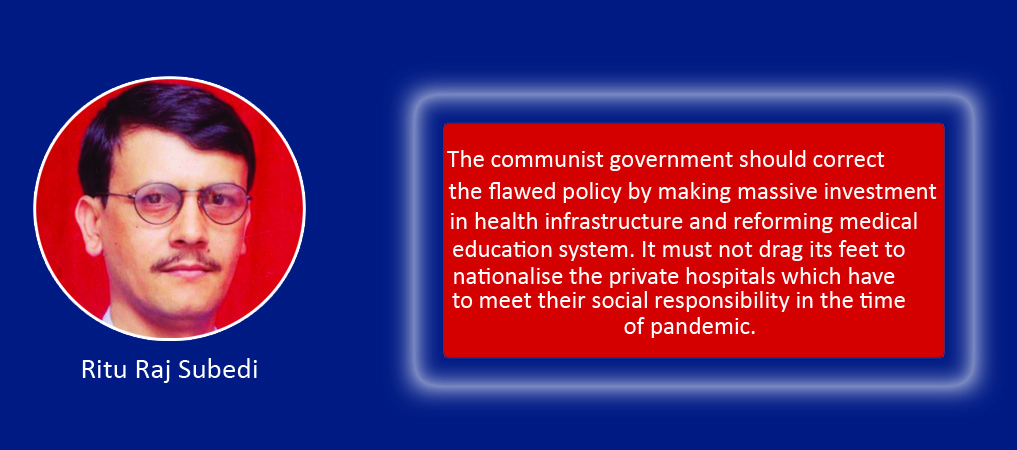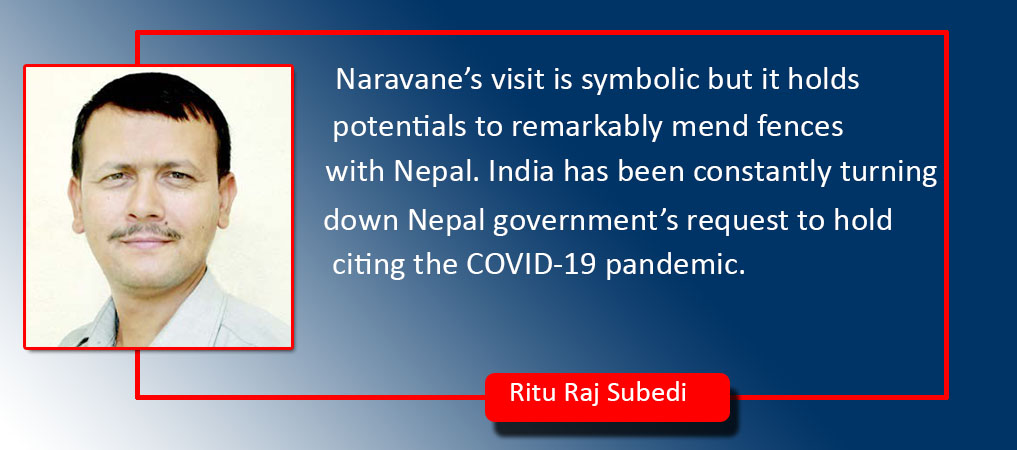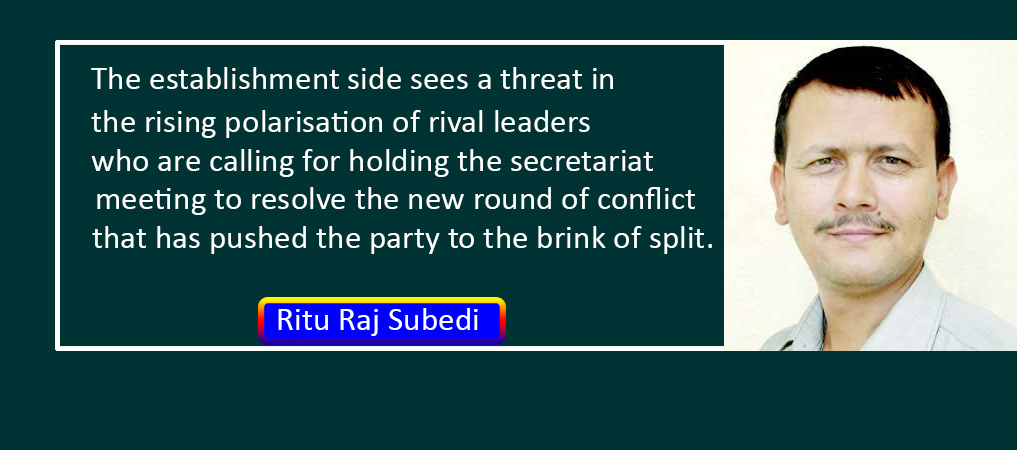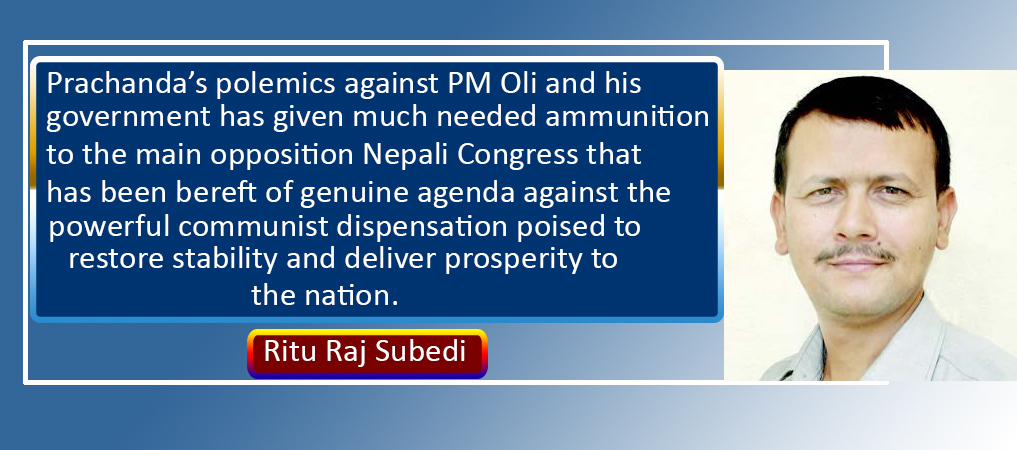Judiciary, Executive On Collision Course

Ritu Raj Subedi
As the Supreme Court (SC) has invalidated one government ordinance after another, embattled Prime Minister KP Sharma Oli has found himself on a sticky wicket. Now his five-member cabinet that is handling 25 ministries is obviously facing difficulty in running the day-to-day affairs of the state amidst the coronavirus pandemic. The SC has refused to recognise the cabinet reshuffle made following the dissolution of House of Representatives (HoR) and announcement of mid-term elections. The PM has already said that it is quite difficult for this diminutive cabinet to hold the polls slated for November this year though the apex court is yet to decide the fate of dissolved parliament as well as election. The court ruling has not only posed a challenge to run the governance affairs but also shrunk the ruling party’s political and constitutional space.
The other day the PM expressed his dissatisfaction over an array of SC interim orders that has prevented him from implementing the government’s policies and decisions related to the citizenship and extraction of sand, pebbles and stones for export, among others. Irked by the SC’s order to reinstate four sacked UML lawmakers of Karnali Province, PM Oli, who is also the chair of the ruling party, filed a vacate petition seeking its annulment. In the absence of the HoR, the government has taken recourse to the issuance of ordinances on important legal and constitutional matters despite the criticisms from different quarters. The growing incompatible position between the judiciary and executive does not only damage the prospect of effective governance but will also eventually bring systemic crisis and derail the constitutional course.
Thakur in quandary
In order to ensure his stay in power, PM Oli had inducted Mahantha Thakur faction of Janata Samajbadi Party (JSP) into the coalition government but the annulment of the reshuffled cabinet has put party chair Thakur and his cohort in a quandary. Thakur’s move to participate in Oli government had caused a division within his party, with his rival and another chair Upendra Yadav joining the opposition alliance determined to remove Oli from power. Thakur is now one of the big losers in the ongoing political game after the SC quashed the ordinance related to the Citizenship Act issued one day after the House dissolution. It aimed to meet one of his key demands. On one hand, his loyalists were automatically relived of the ministerial positions, and on the other, he has fallen into minority in his own party. He has been unable to submit the signatures of majority of party executive committee members to the Election Commission, which is necessary to claim his authority over the party.
PM Oli is confronting challenges from the opposition alliance comprising five groups - Nepali Congress (NC), CPN-Maoist Centre, Nepal-Khanal faction of UML, Upendra Yadav faction of JSP and Ratriya Janamorcha. The alliance leaders appear optimistic that the court would reinstate the dissolved parliament, paving the way for NC president Sher Bahadur Deuba to lead the new government. On Thursday, its leaders held an interaction with the editors from different media outlets and presented the theoretical basis and prospect of their partnership. The editors fired a volley of questions about their policies and postures - “You will not be different from the present PM when you lead the new government. How can you be trusted given your erratic past records?” Maoist Centre chair Pushpa Kamal Dahal Prachanda tried to convince them while justifying the political and ideological ground of their alliance. He said that it would wage a struggle against regression till the last moment to protect constitution, constitutional norms, Loktantra and nationalism.
However, it is not certain how long the alliance leaders will continue to stick together. Leader Nepal, who holds the key of the alliance, sits on a shaky position. He might desert it if Oli meets his two main demands – the UML must return to its status prior to Jesth 2, 2075 BS and Oli should retract his decision of House dissolution and criticise self for the move. On the other hand, the establishment has demanded that lawmakers affiliated to Nepal faction should withdraw their signatures from the petition filed at the SC seeking to appoint Deuba as the new PM. However, neither side is sure these demands are met without any conditions. Nepal faction has been disappointed after Oli filed a vacate petition demanding the termination of the order that reinstated the UML lawmakers of Karnali province. In fact, this ruling has created a legal framework to restore the party unity by recognising its organisational committees created by the 9th convention.
Foreign interference
The alliance leaders have continued to ratchet up their anti-Oli rhetoric. Some days back five former prime ministers representing the alliance had issued a statement, calling on bureaucracy, security agencies, civil society and democratic forces to stand against any activities that have long-term negative impacts on the nation. The five former PMs had also voiced against direct or indirect foreign influence and interference in the country’s politics and internal affairs. Their statement has alluded to widespread speculations that the BJP-led Indian government has thrown weight behind the Oli administration. Nonetheless, it has drawn diverse reactions from different quarters for its strong content and ambiguous reference to ‘foreign interference.’ PM Oli has not responded to their claim of foreign intervention but on Friday he reiterated that the government would maintain balanced relations with the neighbours. He said: “We do not believe in deception and do not wish to pit one against the other.”
It is unfortunate that the key political actors lack coherent and unified stand on the country’s foreign policy. It is no secret that the division among the national forces prepares ground for foreign intervention in domestic matters. India’s involvement in Nepal’s political changes and internal affairs is not something new. What is worrying is that the leaders have not learnt from the past and used relations with neighbours to suit their personal and partisan interest. Such a selfish approach to foreign policy has negative consequences for national sovereignty, stability and prosperity.
(Deputy Executive Editor of The Rising Nepal, Subedi writes regularly on politics, foreign affairs and other contemporary issues. subedirituraj@yahoo.com)
Recent News

Do not make expressions casting dout on election: EC
14 Apr, 2022
CM Bhatta says may New Year 2079 BS inspire positive thinking
14 Apr, 2022
Three new cases, 44 recoveries in 24 hours
14 Apr, 2022
689 climbers of 84 teams so far acquire permits for climbing various peaks this spring season
14 Apr, 2022
How the rising cost of living crisis is impacting Nepal
14 Apr, 2022
US military confirms an interstellar meteor collided with Earth
14 Apr, 2022
Valneva Covid vaccine approved for use in UK
14 Apr, 2022
Chair Prachanda highlights need of unity among Maoist, Communist forces
14 Apr, 2022
Ranbir Kapoor and Alia Bhatt: Bollywood toasts star couple on wedding
14 Apr, 2022
President Bhandari confers decorations (Photo Feature)
14 Apr, 2022



